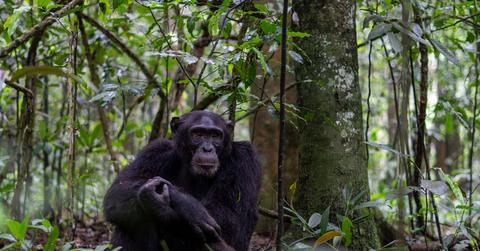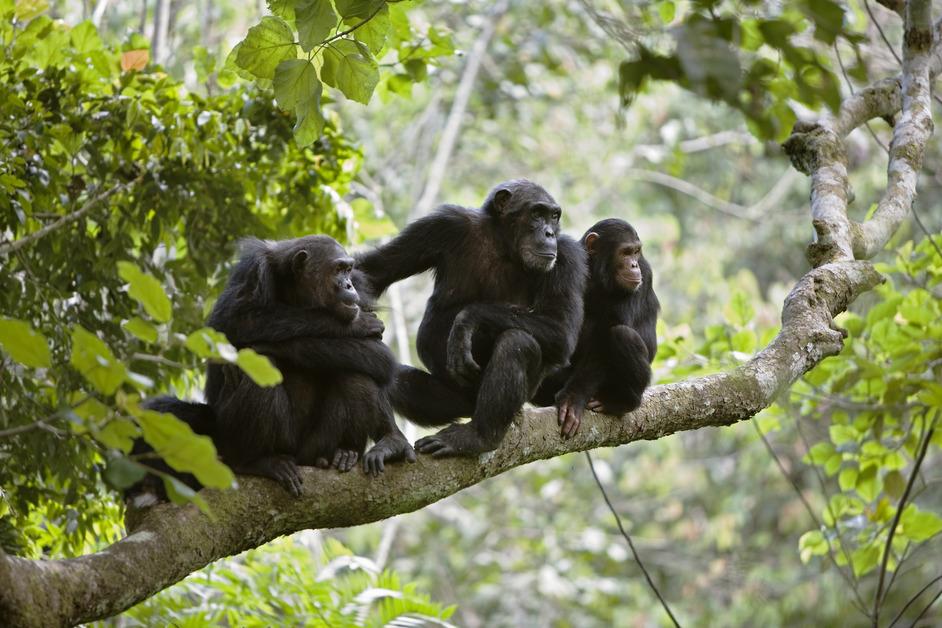The Cannibalistic Chimp Studied by Dr. Jane Goodall: Who Was Passion the Chimpanzee?
Published Dec. 26 2023, 11:20 a.m. ET

The Gist:
Passion the Chimpanzee was a female chimp known for her cannibalistic killing sprees in the 1970s.
She was studied by Dr. Jane Goodall and exhibited deviant aggressive behavior, challenging previous research on the behavior of female chimps.
Dr. Jane Goodall, DBE, Founder of the Jane Goodall Institute, and UN Messenger of Peace, once studied an aggressive female chimp, Passion the chimpanzee, known for killing and eating baby chimps with the help of her daughter, Pom.
Passion’s behavior was disturbing, but also an anomaly. Most chimp research up until that point had concluded that female chimps were more reserved and trusting, but Passion the chimpanzee was neither.

Who was Passion the chimpanzee?
Passion the chimpanzee was a female chimp who lived in Tanzania’s Gombe Stream National Park during the 1970s. Passion is best known for a series of infanticides in the mid 1970s. Passion and her daughter Pom kidnapped, killed, and ate three baby chimpanzees over the period of a month, per an article in Current Biology.
Dr. Jane Goodall tried to intervene when Passion turned violent.
Dr. Jane Goodall had been studying chimps in Gombe, Tanzania for over a decade before the incident with Passion. Male chimpanzees were known to be violent, sometimes participating in the killing of young chimps and overall aggressive behavior, according to Live Science. Female chimpanzees, on the other hand, were generally seen as less aggressive, and timid in comparison to the males, comparative psychologist Simon Townsend explained to Live Science.
For these reasons, Passion’s killings were a surprise.
Dr. Jane Goodall studied Passion’s deviant behavior, and even once tried to stop a killing spree by throwing sticks and stones and yelling, per Live Science.
The killings carried out by Passion and her daughter Pom were exceptionally brutal. According to Grunge, the two female chimps would snatch the infants straight from the mother’s arms. Then they would bite through the chimp’s skull, before eating the body entirely. The cannibalism between the two was described by Goodall as “the way normal prey was consumed,” eaten with leaves like any other food, according to her book, Through a Window.
Goodall estimates that Passion and Pom may have killed up to 10 infants over the course of two years. The killings finally stopped after each of the female chimps gave birth to their own young, per the Jane Goodall Institute.
Passion and Pom’s killings changed Dr. Jane Goodall’s view of chimpanzees forever.
Dr. Jane Goodall said she recalls hating Passion and Pom at the time of the killings, but later saw similar behavior repeated among other female chimps. These infanticides, along with other aggressive conflicts between chimp communities at the time, "forever changed [her] view of chimpanzees," per a Q&A interview posted by the Jane Goodall Institute in 2015.
She had previously concluded chimps to be nicer than humans, and she was proved wrong. In the 2015 Q&A, Goodall said that chimpanzees are unable to grasp the effects of their actions on the victims, and “Nor can they plan physical and mental torture. Only we are capable of true evil.” Wise words!